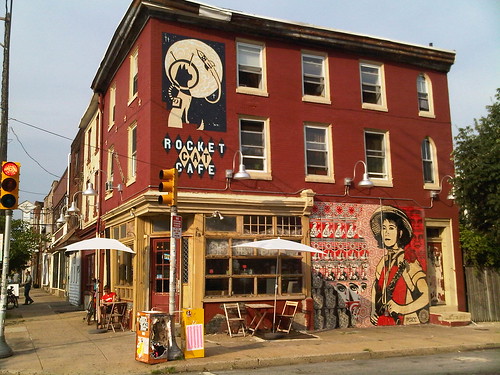
This month I was presented with a reason to venture further North into Fishtown than I have ever been before. I am grateful for this nudge. Bridgette Bussey, a classmate and friend of mine from Drexel University was having an opening at Rocket Cat Café. Walking over from the Berks El station, I encountered a tank painted with pink camouflage and tagged with graffiti. I crossed through the grassy area where it sat, past a giant twelve-sided die, over to the café.
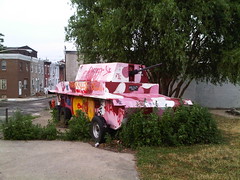
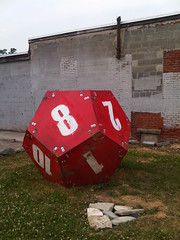
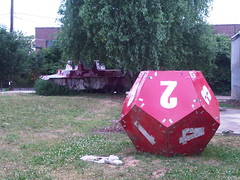
The coffee shop as an exhibition space is a firmly established cliché. But the eclectic character of Rocket Cat Café fosters a different experience. Make no mistake: this is the stuff of hipster fantasyland. The cluttered décor has the second-hand uniqueness of being assembled piecemeal from flea markets, thrift stores, and granny’s attic. There is a certain sense of intentional stylistic dilapidation, though everything is fully operational. Every corner of the place is idiosyncratic, making for interesting installation of the art. If the traditional coffee shop art show is the equivalent of an institutional gallery hanging, then this is closer to being haphazard salon style: artworks are fit in like puzzle pieces wherever there is room.
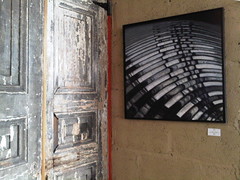
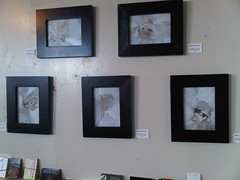
Outside of Rocket Cat Café is a Shepard Fairey mural, pasted up in April while the artist was in the region working on his show for Deitch Projects. There is nothing guerilla about the work, which was mounted with full permission. As much as I disliked Fairey’s offerings at Dietch Projects, for context and iconographic tedium, I happen to like the mural here. It meshes with the outward visual character of the neighborhood.
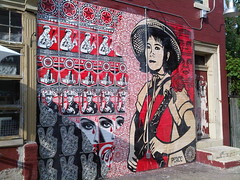
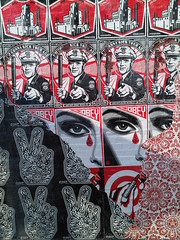
Up the block I visited three artist-run spaces. Most notably, Ryan V. Brennan’s collages at Part Time Studios burst out of the picture plane with irrepressible energy, rupturing the frames that house them like self-activated pop-up books which do not know their own strength. I enjoyed his “Cinemallage” pieces, which construct miniature worlds to house videos of stop-motion animation.
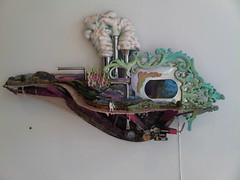
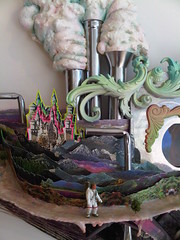
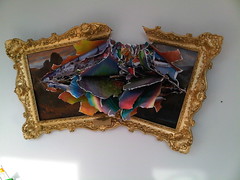
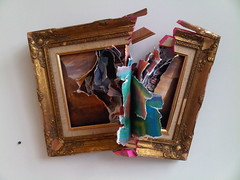
The vibe at VWVOFFKA gallery felt limited on ideas, not necessarily the fault of any individual artwork shown. I mostly avoided Highwire Gallery after a cursory breeze-through told me everything I would need to know about the current exhibition. If you can count on anything from artist-run spaces, it is the fact that they will be unpredictably hit-or-miss from show to show, and from artist to artist in group shows (not that I have any prior perspective specific to the three locations described here). What is important above all is that they exist.
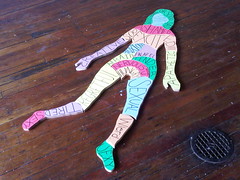
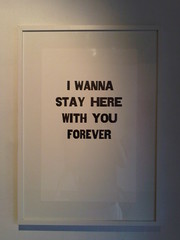
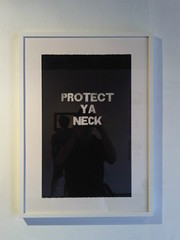
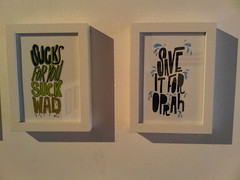
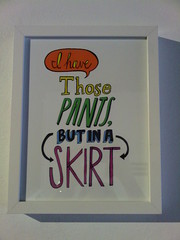
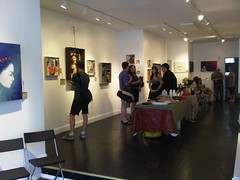
I then hopped a bus down to Girard, from which I headed towards The Piazza. Does anyone out there know who does these street art tags of a submarine floating in a pint glass?
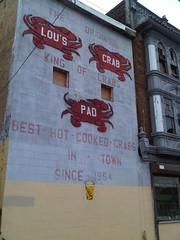
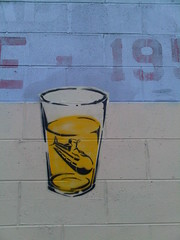
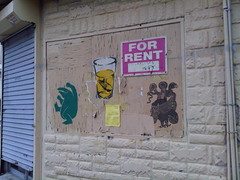
Kim Alsbrooks’ White Trash at Bambi Gallery took my breath away. Repurposing dirty trash, such as crumpled food containers or flattened beer cans, she adorns them with lovingly rendered cameos copied from late-Eighteenth and early-Nineteenth Century portraits. There are a number of currents playing upon the series, not limited to: turning trash into treasure; objects of mass consumption transformed into unique keepsakes; the juxtaposition of the dignified sitters versus the vulgarity of the marketing messages. For me, the pure pleasure of looking closely at each work was what clinched it. The miniature scale invites careful inspection, which allows one to see that these are not entirely polished portraits or exacting copies. The hand of the artist is very much present, imbuing a certain casualness that gives the impression of an intimate familiarity with the sitter.
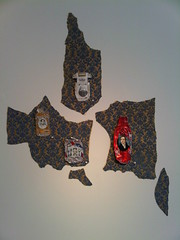
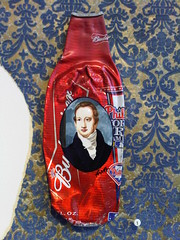
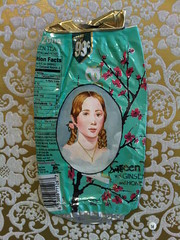
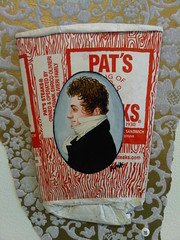
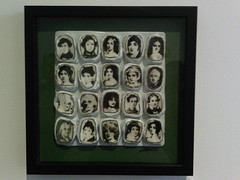
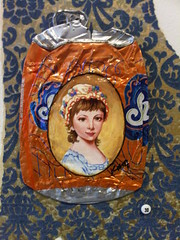
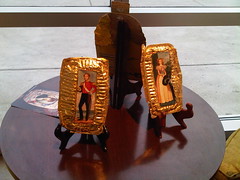
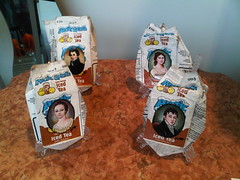
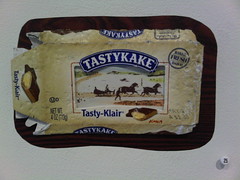
Andrés Alvarez, also a recycler, shared the gallery with her, fashioning collaged cereal boxes into his canvas. His paintings are larger-in-scale landscapes that allow much of the underlying layer of found material to shine through. For the evening, Bambi Gallery felt positively Neoclassical Academic by way of the Twenty-first Century.
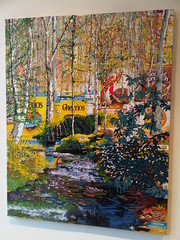
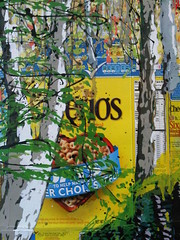
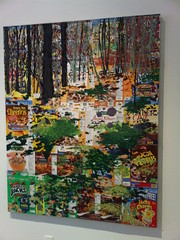
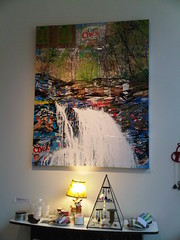
I ended my First Friday crawl at Projects Gallery for It’s Who You Know. The premise is that five local artists, who have previously shown there, were chosen to invite five other artists to contribute one work. Is the concept terribly original? What professional community does not operate within the network of “it’s not what you know, it’s who you know”? The description on their website elaborates, “With no prevailing theme, the work will represent the taste and artistic expressions of the initial five. It will be illustrative of overlapping styles within social groups while highlighting the schisms that exist between the groups themselves.” Based on what I saw, I would agree with the first statement (which is simply factual), but not so much on the second point (which is a bunch of hooey).
That said, I had few arguments with the five artists’ curating choices. I adored Mia Rosenthal’s hand drawing of every piece of cereal in a General Mills 8 Pack, which would transfer beautifully to a silkscreen repeat pattern. I also liked Brooke Holloway’s contribution, which cuts to the heart of the gender politics at play in all of her work that I’ve seen, minus the obviousness of the blatantly sexual imagery she often uses. One final notable, among many other solid pieces not to be listed, was Aubrie Costello’s cigarette pack proscenia for exotic dancers (another recycled trash artwork!).
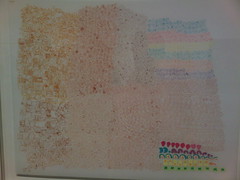
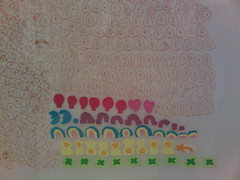
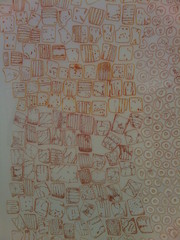
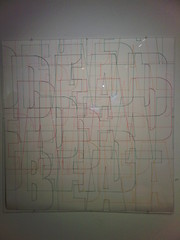
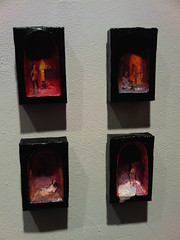
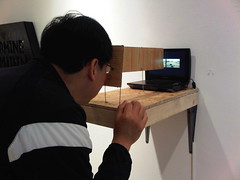
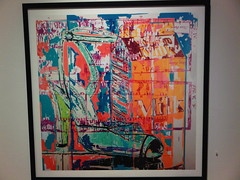
Seeing the one Susan Howard painting in the back gallery, I am really kicking myself for missing Tipping Point at Projects last month.
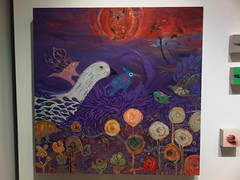
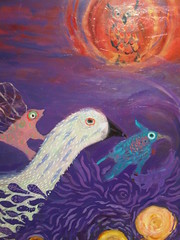
No comments:
Post a Comment